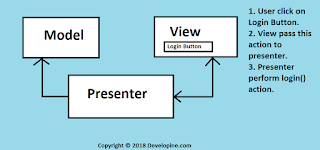In this example I will show you how to get precise call state in Android programatically using java reflection API.
Add this in Android Manifest file. Declare Broadcast receiver.
<receiver
android:name=".OutCallLogger"
android:enabled="true"
android:exported="true" >
<intent-filter>
<action android:name="android.intent.action.PRECISE_CALL_STATE" />
<action android:name="android.intent.action.NEW_OUTGOING_CALL" />
</intent-filter>
</receiver>Add below permissions in android manifest file.<uses-permission android:name="android.permission.READ_PHONE_STATE" />
<uses-permission android:name="android.permission.PROCESS_OUTGOING_CALLS" />
<uses-permission android:name="android.permission.READ_PRECISE_PHONE_STATE" />
Also add this line in manifest file. <uses-feature android:name="android.hardware.telephony"></uses-feature>And this is your class which will be used for getting precised call state for outgoing calls. public class OutCallLogger extends BroadcastReceiver {public OutCallLogger() {
}
TelephonyManager Tm;
ITelephony telephonyService;
Class c = null;
Method methodGetInstance = null;
Method methodGetActiveFgCallState=null;
String TAG="Tag";
Object objectCallManager=null;
Context context1;
Class<?> classCallManager;
Class telephonyClass;
Class telephonyStubClass;
Class serviceManagerClass;
Class serviceManagerStubClass;
Class serviceManagerNativeClass;
Class serviceManagerNativeStubClass;
Method telephonyCall;
Method telephonyEndCall;
Method telephonyAnswerCall;
Method getDefault;
Method[] temps;
Constructor[] serviceManagerConstructor;
// Method getService;
Object telephonyObject;
Object serviceManagerObject;
private Timer timer= null;
@Override
public void onReceive(Context context, Intent intent) {
// TODO: This method is called when the BroadcastReceiver is receiving
// an Intent broadcast.
this.context1= context;
Tm=(TelephonyManager)context.getSystemService(Context.TELEPHONY_SERVICE);final ClassLoader classLoader = this.getClass().getClassLoader();
try {
classCallManager = classLoader.loadClass("com.android.internal.telephony.CallManager");
Log.e(TAG, "CallManager: Class loaded " + classCallManager.toString());
methodGetInstance = classCallManager.getDeclaredMethod("getInstance");
methodGetInstance.setAccessible(true);
Log.e(TAG, "CallManager: Method loaded " + methodGetInstance.getName());
objectCallManager = methodGetInstance.invoke(null);
Log.e(TAG, "CallManager: Object loaded " + objectCallManager.getClass().getName());
Method[] aClassMethods = classCallManager.getDeclaredMethods();
for(Method m : aClassMethods)
{
Log.e("MEthods", m.getName());
}
methodGetActiveFgCallState = classCallManager.getDeclaredMethod("getActiveFgCallState");
Log.e(TAG, "CallManager: Method loaded " + methodGetActiveFgCallState.getName());
Log.e(TAG, "CallManager: What is the Call state = " + methodGetActiveFgCallState.invoke(objectCallManager));
}
catch (ClassNotFoundException e) {
Log.e(TAG, e.getClass().getName() + e.toString());
}
catch (NoSuchMethodException e) {
Log.e(TAG, e.getClass().getName() + e.toString());
}
catch (InvocationTargetException e) {
Log.e(TAG, e.getClass().getName() + e.toString());
}
catch (IllegalAccessException e) {
Log.e(TAG, e.getClass().getName() + e.toString());
}
Tm.listen(new PhoneStateListener(){
public void onCallStateChanged(int state,String number) {
super.onCallStateChanged(state, number);
try {
if (methodGetActiveFgCallState.invoke(objectCallManager).toString().toLowerCase() .equals("idle"))
{
//Toast.makeText(context1, "I am in idle state", Toast.LENGTH_LONG).show(); }
if (methodGetActiveFgCallState.invoke(objectCallManager).toString().toLowerCase() .equals("active"))
{
//Toast.makeText(context1, "I am in active state", Toast.LENGTH_LONG).show(); }
Toast.makeText(context1, " "+methodGetActiveFgCallState.invoke(objectCallManager).toString(), Toast.LENGTH_LONG).show();
} catch (IllegalArgumentException e) {
// TODO Auto-generated catch block e.printStackTrace();
} catch (IllegalAccessException e) {
// TODO Auto-generated catch block e.printStackTrace();
} catch (InvocationTargetException e) {
// TODO Auto-generated catch block e.printStackTrace();
}
}
}, PhoneStateListener.LISTEN_CALL_STATE);
}
A Toast will appear which will tell you about call state. Find a line which shows Toast.


Hi,
ReplyDeleteHow can get callbacks(Hold,Connecting,Disconnecting) using PRECISE_CALL_STATE
From telephone manager source, i understood we can get this action as broadcast
https://android.googlesource.com/platform/frameworks/base/+/master/telephony/java/android/telephony/TelephonyManager.java.
But i am unable to get any callback.
This is not working
ReplyDeleteRead_precise_phone_state permission is only available to system apps, so your manifest file will show an error if you include this permission in it
ReplyDeleteThis is not working code. It remains in state idle. And for READ_PRECISE_PHONE_STATE is allowed only for the System apps.
ReplyDelete